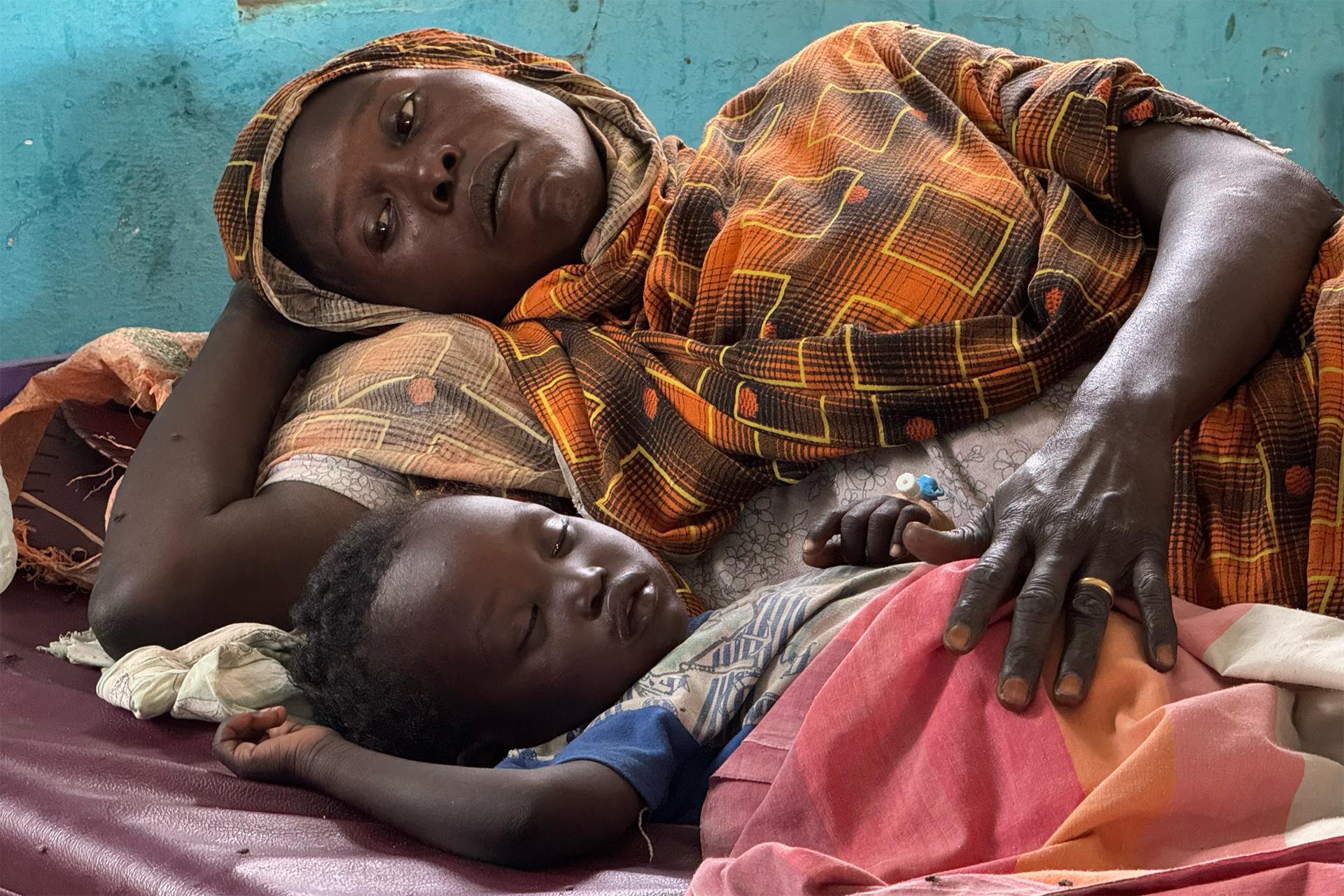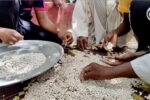Cholera in the capital: increasing daily with deadly effect
20 June 2025
Sudan’s capital, Khartoum, has been ravaged by war since its outbreak in April 2023. With the near-total absence of medical facilities, the capital has also been ravaged by cholera with cases increasing daily.
The stark numbers speak for themselves. Since January, Khartoum State has had over 7,700 cholera cases and 185 related deaths, according to health authorities. In one single day last month, the medical charity Médecins Sans Frontières (MSF) cited 500 cases in Khartoum. Health officials also reported 70 cholera-related deaths in just two days in late May.
The situation is little better across the country. The ongoing conflict has crippled water and sanitation systems, creating conditions ripe for the spread of disease. MSF reported more than 65,000 suspected cholera cases and at least 1,700 deaths across 12 of its 18 states by late May 2025.
Since the outbreak of war in Sudan in April 2023, the country’s already fragile healthcare system has been pushed to the brink. Fighting between the Sudanese Armed Forces (SAF) and the Rapid Support Forces (RSF) has destroyed medical infrastructure, displaced health workers, and disrupted access to basic services. Many hospitals have shut down or are operating with minimal supplies and staff, particularly in high-conflict areas like Khartoum, Darfur, and Kordofan.
The United Nations agency for children reports that cholera is spreading in Sudan’s capital in an environment where nearly 307,000 children are suffering from acute malnutrition including 26,000 with severe acute malnutrition.
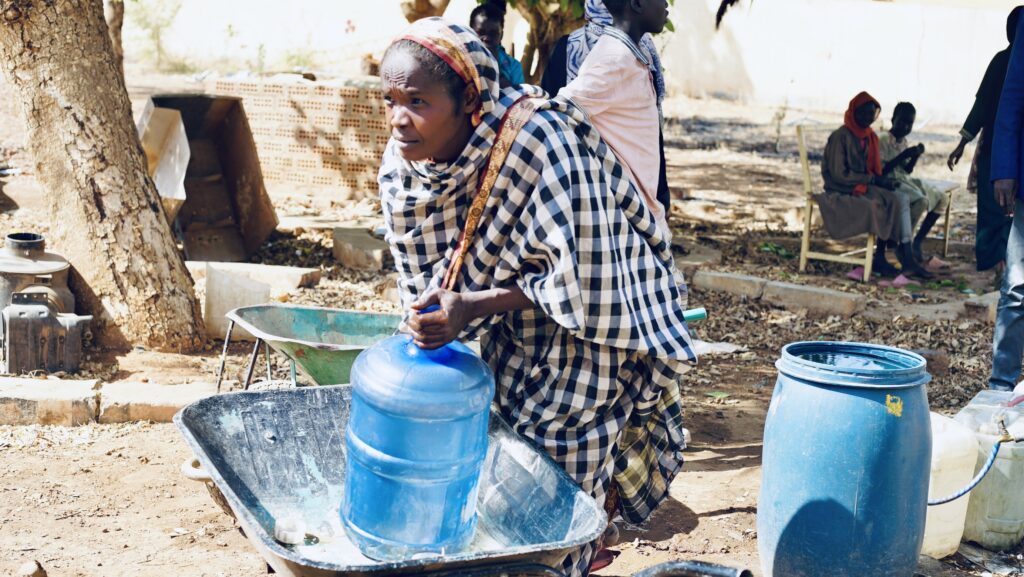
Critical deficiencies in medical supplies, water, and time
Sudan’s independent doctors’ syndicate reported a rise in cholera-related death rates in the states of Khartoum, North Kordofan, and River Nile, and called on the Sudanese Ministry of Health to immediately declare a public health emergency. Additionally, the committee warned that ongoing security restrictions on humanitarian activities are further threatening to accelerate the spread of the disease.
According to Suleiman Ammar, MSF medical coordinator in Khartoum, one of the key challenges is identifying cholera cases and providing treatment in time. “Cholera is treatable,” Ammar notes, “but only if patients receive care early enough, which is not the case in many areas.”
Moreover, he points out that rehabilitating the damaged water treatment infrastructure will require time. Therefore, it is vital to intensify efforts to promote hygiene and sanitation practices as a core component of outbreak response.
Access to clean water is one of biggest challenges in curbing the disease, says Israa Khalid, a doctor in South Khartoum. “Drone attacks have caused power outages at water purification stations which has left people with no choice but to use unclean water,” she told Ayin. With the rainy season approaching, Dr Israa Khalid fears cholera will spread further and restrict access to critical humanitarian supplies.
Along with poor sanitation and clean water, the Preliminary Committee of the Sudanese Doctors Syndicate attributed the worsening cholera outbreak to inadequate preventive measures, such as a shortage of intravenous (IV) fluids and medical staff.
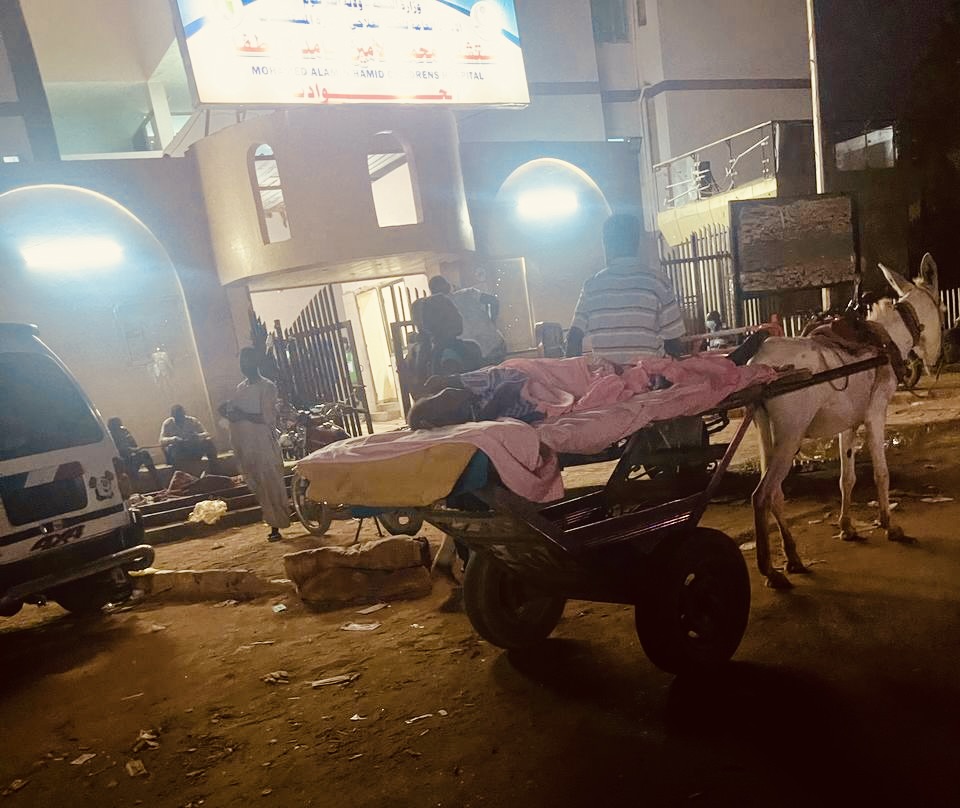
State support
The state ministry of health has established seven field clinics and isolation centres in the capital, local health workers told Ayin. While commendable, the same sources said, their efforts are insufficient to meet the growing rate of cholera patients.
“The health system has collapsed,” says Hind*, a health volunteer in Omdurman. “The isolation centre at Al-Nau Hospital was overwhelmed and eventually shut down by the ministry of health, which moved it to the severely under-resourced Umbudda Hospital that lacks even basic sanitation.”
The conflict has prevented state actors to access wide areas of the capital that were previously under RSF control. “So, who has stepped in to fill the gap and continues to do so to this day? Volunteers. Young men and women, medical staff, and ordinary residents from across neighborhoods have taken the lead,” she said.
But instead of supporting these efforts, Hind says, the health ministry has tried to downplay their efforts. “As the cholera epidemic continues to claim lives in Khartoum State, the Ministry of Health remains a silent, complicit bystander, engaging in a familiar and troubling pattern of misinformation and the concealment of facts. Their attempts to sideline the very volunteers who carried the burden of a collapsed state is a disgrace.”
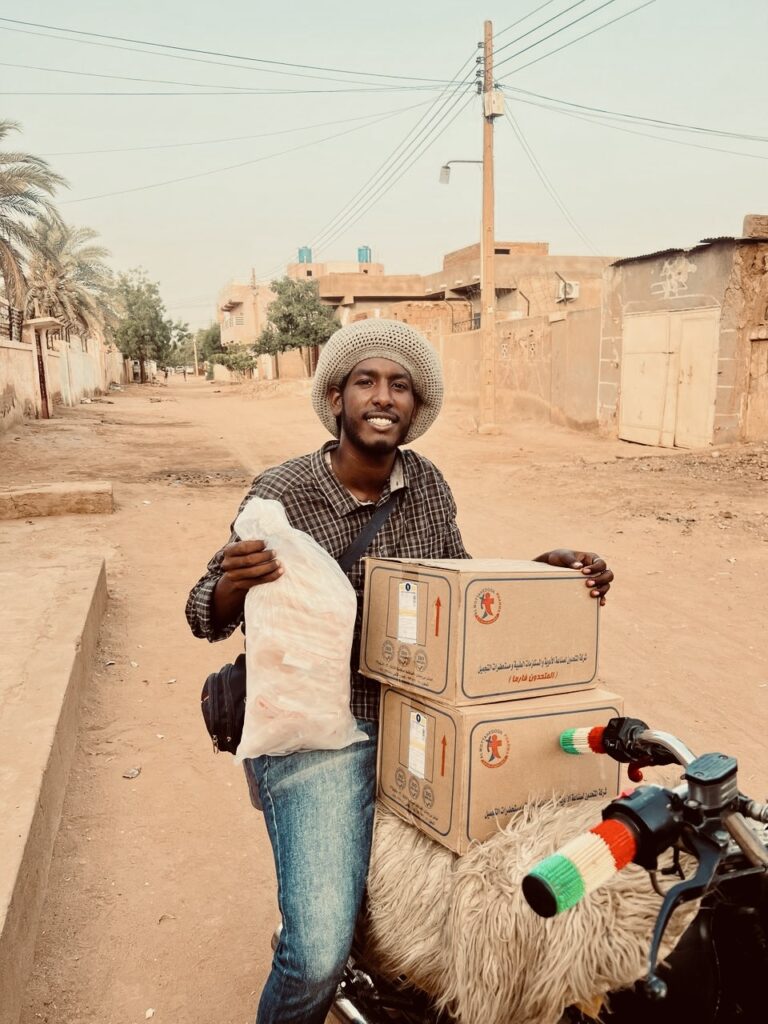
Volunteers
As the cholera outbreak spreads across Sudan, volunteer-led community initiatives have attempted to step in to fill the gaps. Among the first responders were volunteers originally from Al-Nau Hospital in Omdurman.
“When the first cholera cases appeared, I joined other volunteers and reached out to our colleagues who had been working at Al-Nau Hospital since the war began,” says health volunteer Mohamed Awad. “We asked what they urgently needed and immediately started delivering IV fluids and medications to isolation centers across Khartoum, coordinating with the Al-Nau Hospital Volunteer Initiative.” Lacking basic supplies, Awad conducted a social media driven fundraising campaign to raise funds.
One widely shared social media post reads: “Residents across Old Omdurman from Abbasiya, Al-Mawrada, Al-Arda, Bantt, Hai Al-Dhobat to Al-Fitayhab we are mobilizing to support you. If someone is suffering from cholera and cannot afford IV fluids or essential medicine, please reach out. We are here to help.” These grassroots responders not only shared their phone numbers publicly but also coordinated deliveries of life-saving treatments directly to patients’ homes.
“Within a week, we were able to distribute critical supplies to health centers in old Omdurman, Umbadda, and even directly to patients at home.”
While visiting homes, health volunteers from the Omdurman Emergency Response Rooms (ERRs) found people trying their best to treat their loved ones from home, says Alaa* a health volunteer in Omdurman. “People are relying entirely on themselves, caring for infected family members and tracking serious cases, because of the government’s limited response and the lack of clean drinking water.” This, Alaa told Ayin, along with the crippling summer heat which often reaches 47°C, exacerbates the situation further.
“Cholera is not just a public health crisis, it is a stark revelation of the state’s failure,” Hind added. “It’s proof to the Sudanese people of who truly stands with them in times of hardship and who disappears, only to return and claim credit for work they never did,” Hind added.


